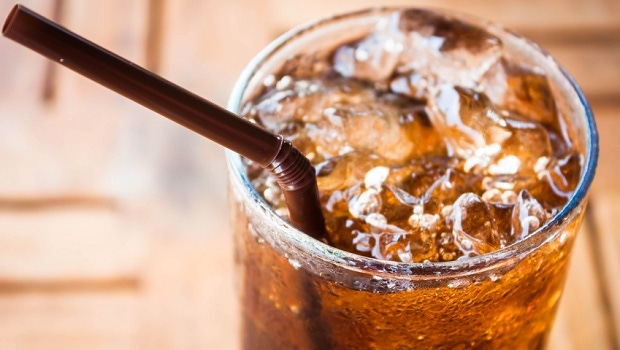In the continuing battle of soda wars, Wendy’s is the latest fast-food company to surrender to pressure from parents and health advocacy groups urging it burger chain to remove sugar-sweetened beverages from its children’s menus in an effort to combat childhood obesity.
January 20, 2015

In the continuing battle of soda wars, Wendy’s is the latest fast-food company to surrender to pressure from parents and health advocacy groups urging it burger chain to remove sugar-sweetened beverages from its children’s menus in an effort to combat childhood obesity.
The move was hailed by MomsRising.org, the Interfaith Center on Corporate Responsibility, and the Center for Science in the Public Interest (CSPI), all of which have been urging the chain to improve the nutritional quality of its kids' meals by removing soda from the kids menu.
According to the advocacy groups, soda is not an appropriate beverage choice for children, given that sugary drinks contribute to diabetes, heart disease, obesity, tooth decay, and other health problems in children and adults. They cited research in The Lancet that found drinking just one additional sugary drink every day increases a child's odds of becoming obese by 60 percent.
Fast-food restaurants have been under fire for years to remove sugary drinks from their kids’ menus and to reduce marketing tactics to children.
In 2011, McDonald's revamped its Happy Meals with its “Commitments to Offer Improved Nutrition Choices" initiative, a long-term plan to help customers—especially families and children—make nutrition-minded choices when dining out. In 2013, the fast-food giant announced it will market only water, milk and juice as the beverage in Happy Meals on menu boards and in-store and external advertising; utilize Happy Meal and other packaging innovations and designs to generate excitement for fruit, vegetable, low/reduced-fat dairy, or water options for kids; dedicate Happy Meal box or bag panels to communicate a fun nutrition or children’s well-being message; and ensure 100 percent of all advertising directed to children to include a fun nutrition or children’s well-being message.
Last week’s move by Wendy’s to reduce sugar-sweetened beverages to kids now leaves Burger King as the only Big 3 burger chain still with soda in meals specifically intended for children. Will BK follow suit and remove sugary drinks from its kids’ menus? Other large chains including Subway, Chipotle, Arby’s and Panera already don’t include soda as the default option in their kids’ meals.
CSPI Senior Nutrition Policy Counsel Jessica Almy said: “Restaurants should not be setting parents up for a fight by bundling soda with meal options designed for kids. Wendy's is taking a responsible step forward that will improve children's health and make it easier for parents to make healthy choices for their children. We hope Burger King, Applebee's, IHOP, and other chains follow suit."
But if you think the soda war is only being found at the restaurant level, think again.
In June 2104, a proposed bill in California that would have required sugar-sweetened beverages to carry warning labels similar to those on alcohol and tobacco fizzled out when it failed to clear the Assembly Committee on Health.
Remember the infamous restriction on super-sized sodas in New York City that was implemented in 2012 as part of former Mayor Michael Bloomberg’s anti-obesity campaign? Nearly two years later in June 2014, New York’s highest court permanently killed the “Portion Cap Rule." (Click here to view the Slide Show “History of Mayor Bloomberg's Soda Ban."
The majority’s ruling will most certainly not end the contemporary debate on how the United States should tackle an obesity epidemic compromising the health of millions of Americans and whether Congress, states and local governments should impose restrictions on fatty and sugary foods and beverages. In fact, California recently proposed a state law that would have required a warning label on sugar-sweetened beverages. But the bill recently died after it failed to clear the California Committee on Health.
The conversation over the role of government in promoting nutrition could soon shift to Capitol Hill where Rep. Rosa DeLauro (D-Conn.) intends to introduce a bill to tax sugar-laden beverages.
You May Also Like




.png?width=800&auto=webp&quality=80&disable=upscale)